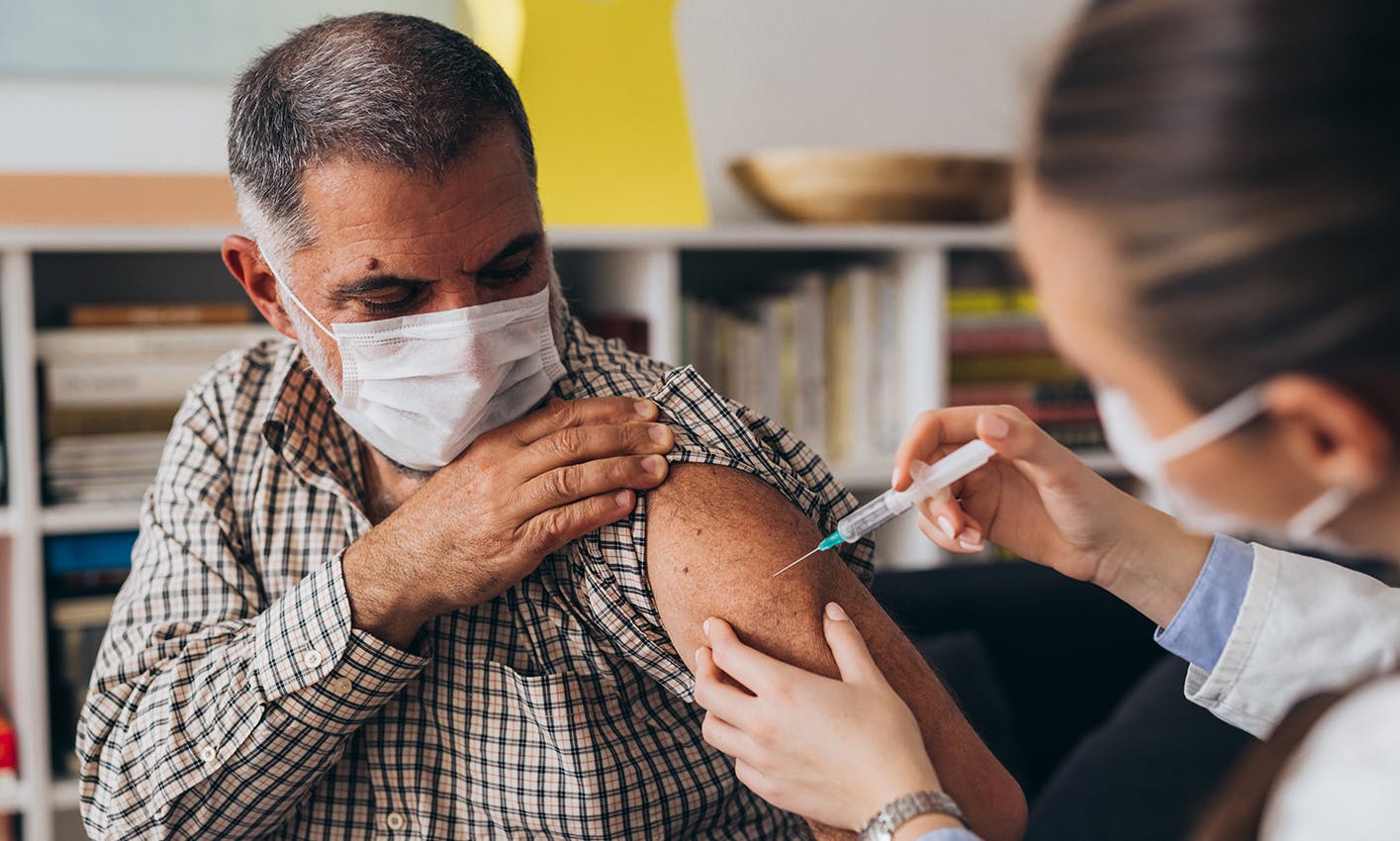
The Benefits of Using PROs in Vaccine Research & Development
As healthcare systems face multiple epidemics of flu, pneumonia, respiratory syncytial virus (RSV), and COVID infections, the industry is racing to research and develop vaccines that can help safeguard public health. The RSV vaccine market is expected to grow by an estimated $4 billion USD in sales by 2028, while the flu and pneumococcal vaccine markets grow by an estimated $2 billion.1
There’s an urgent need for reliable vaccines in diverse formats to protect high-risk groups, including children, mothers, elderly, and those with weakened immune systems. As new vaccines are created, scientists consider how the immune system responds to germs, which populations require urgent treatment, and what technologies are ideal for developing vaccines. In addition to researching possible side effects and safety profiles new vaccines may present.
More and more, researchers are turning to patient-reported outcome (PRO) measures to facilitate the process of measuring the impact of subsequent public health responses following major disease crises, such as the SARS-CoV-2 virus in 2019.

Incorporating Vaccine Research with Validated Health Surveys
PROs are health outcomes reported by patients or study subjects themselves without interpretation by outside observers. Through self-directed, self-completed questionnaires or standardized surveys, PROs provide relevant, reliable and useful data for evaluating the nuanced effects of a disease or treatment.
By directly capturing the experiences and perspectives of individuals receiving vaccines, patient-reported outcomes offer a more complete understanding of health status, quality of life, vaccine impact and treatment satisfaction. This means that researchers and stakeholders can use validated health surveys to:
- Gain insight on the specific benefits of a vaccine
- Identify potential side effects or adverse reactions
- Examine a vaccine’s efficacy in preventing disease
PROs can also be leveraged earlier in the process of researching vaccines by facilitating the identification of specific patient populations that may benefit most from vaccination. Or later in the journey of applying vaccines to create targeted interventions and public health strategies and to assess public health and cost-effectiveness models to illuminate the overall value of a vaccination.2
Because PROs offer quantitative information on how patients feel and function, they help build immunization programs that are not only scientifically sound but also patient-centered, which may enhance the effectiveness and acceptance of vaccines within communities.

PROs in Action: Health Surveys in Vaccine Studies
With the involvement of more knowledgeable stakeholders, the Food and Drug Administration’s publication of PRO guidance and the emphasis that regulatory agencies now place on understanding patient perceptions and experiences, patient-reported outcomes have contributed to many qualitative and quantitative research studies, clinical trials and patient preference studies.2
In one time trade-off (TTO) study, QualityMetric scientists estimated RSV-related health utility values for American adults aged 60 and older using PRO surveys that described three RSV health states: upper respiratory tract illness, lower respiratory tract illness, and severe lower respiratory tract illness.4
The research revealed new information on the valuation of RSV-specific health states by severity, indicating that adults are willing to trade several days at the end of their life to avoid an RSV episode at the age of 70.4 Scientists also noted that collected data may be used as inputs in economic evaluations of RSV vaccines to accurately capture RSV-related quality-adjusted life-year losses that could be avoided as a result of older adult vaccination.4
Another study evaluating vaccine effects through quality-adjusted life measures shifted focus to examine the short-term reactogenicity of the AS03-adjuvanted H5N1 vaccine expressed through adverse events and quality-adjusted life-day scores.5
They used the SF-36®v2 quality of life survey to record changes over seven days and transformed questionnaire data into SF-6D scores to report quality-adjusted life-day scores.5 The results concluded that daily administration of the SF-36®v2 is capable of capturing changes in QALD scores.5
Expanding the use of the SF-36®v2 beyond vaccine reactogenicity, this versatile health survey can also bridge the gap between assessing immediate vaccine safety and studying broader, more long-term public health impact.
The SF-36®v2 health survey was administered in the EU as part of ORCHESTRA’s three-year international research project. Led by the University of Verona and comprising of 37 partners from 15 countries, the project aimed to generate evidence for the purpose of preventing and treating the COVID-19 virus, evaluating the long-term consequences of COVID-19, determining the economic impact of the disease and contributing findings to the discourse on public health threat preparation.

Developing Invaluable Vaccinations
Quantifying mental and physical health through PRO health surveys may help scientists and stakeholders obtain meaningful scientific, clinical and economic insights to expand our understanding of diseases and ultimately guide new vaccines in development.
As we continue to navigate present and future health crises, the role of patient-reported outcome measures in guiding vaccine development will be critical in addressing urgent public health needs and shaping a healthier, more resilient global population.
Supplement your team’s approach to vaccine research and development by using QualityMetric’s generic, disease-specific and custom PRO instruments or partnering with us for scientific consulting via a broad range of strategic and analytic services.
Contact QualityMetric to get started today.
References
- Handschuh T and Sarabvijay S. RSV will be the new battleground for vaccines manufacturers. Oliver Wyman. www.oliverwyman.com/our-expertise/perspectives/health/2023/november/rsv-will-be-the-new-battleground-for-vaccines-manufacturers.html
- Curran D, Cabrera E and Nelsen L. Patient-reported outcomes in vaccines research: relevance for decision-making. Human Vaccines & Immunotherapeutics. 2022;18:1:1–8. https://doi.org/10.1080/21645515.2021.1875762
- Office of Infectious Disease and HIV/AIDS Policy (OIDP). Vaccine types. 2022. www.hhs.gov/immunization/basics/types/index.html
- Rendas-Baum R, Molnar D, Curran D and Bjorner J. A time trade-off study to estimate respiratory syncytial virus related utility values for older adults in the United States. ISPOR 2023 Boston. 2023. https://www.ispor.org/docs/default-source/intl2023/ispor23rendas-baumposter126708-pdf.pdf?sfvrsn=2519d505_0
- Standaert B, Dort T, Linden J, et al. Usability of daily SF36® questionnaires to capture the QALD variation experienced after vaccination with AS03A-adjuvanted monovalent influenza A (H5N1) vaccine in a safety and tolerability study. Health Qual Life Outcomes. 2019;17:80. https://doi.org/10.1186/s12955-019-1147-4
 NEW COAS IN ONCOLOGY GUIDE
NEW COAS IN ONCOLOGY GUIDE



